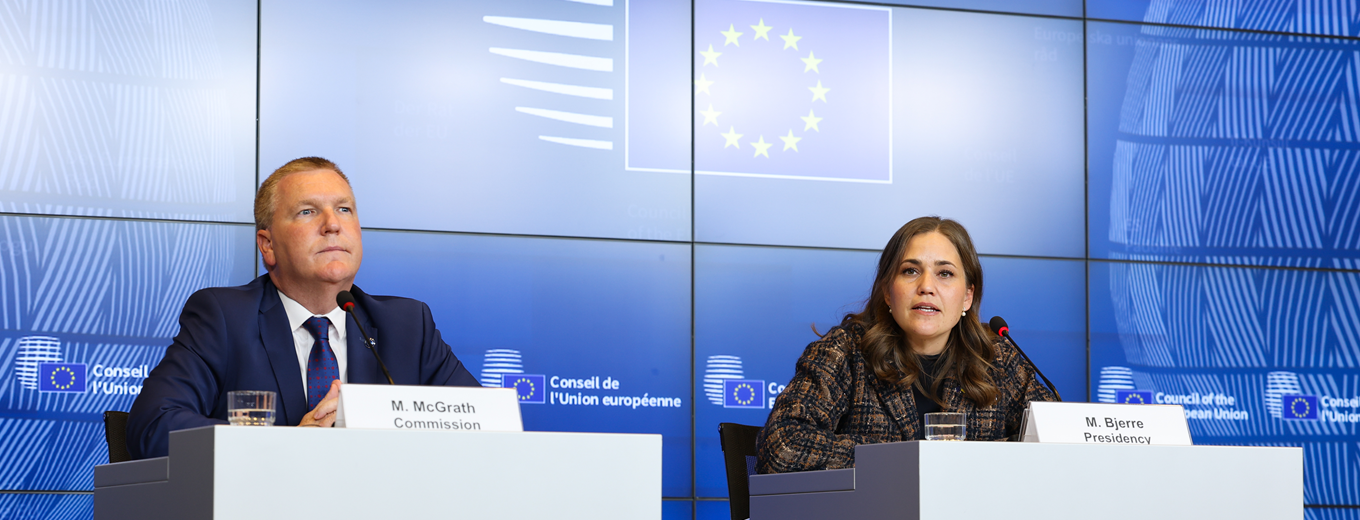EU Member States approve the Swiss association to Horizon; while also agreeing to dual use in the EIC with a provision that could exclude non-EU countries.
One step closer to Swiss programme association: On 21 October 2025, the Council of the EU approved the so called EU Programme Agreement (EUPA). This Council Decision now authorises the European Commission to sign the EUPA on 10 November 2025 after which it will officially enter into force. The EUPA is an international agreement that provides the roof for the participation of Switzerland in selected EU programmes, based on mutual interest. The EUPA is unlimited in duration and can have protocols for the specific programmes in question. For this occasion, the EUPA includes already protocols for Horizon Europe, Euratom, ITER, Digital Europe, Erasmus+ and EU4Health. From the moment of the signature on 10 November 2025, Switzerland will officially be associated to Horizon Europe, Digital Europe, and Euratom retroactively from 1 January 2025. Participation in ITER is planned for 2026 and for Erasmus+ for 2027, all based on the above mentioned EUPA.
Strengthening defence in Europe remains at the political forefront: On 16 October 2025, the European Commission (EC) published a communication entitled ‘Preserving Peace – Defence Readiness Roadmap 2030’. The EU’s efforts to strengthen the security and defence of the continent includes fostering defence innovation and research. The Roadmap 2030 states that defence readiness also means “being ready to deliver cutting-edge innovation”. It gives a special priority to defence-focused AI applications. The Roadmap attributes an important role to the European Competitiveness Fund and the future Horizon Europe Framework Programme in supporting deep tech and disruptive innovation in defence applications. €131 billion go to defence, security and space projects from 2028 for the next seven-year-period. The EIC plays a particular pioneering role in this regard. Already now, the Commission proposed to pilot EIC funding for dual use projects for 2026. On 8 October 2025, the Council of the EU agreed its position to incentivise defence-related investments in the EU budget. Concretely, the plan is to amend the regulations of the current Horizon Europe, Digital Europe, STEP, European Defence Fund (EDF) and Connecting Europe Facility (CEF) programmes, introducing a exception to the current ‘civil clause’, which stipulates that only projects with civilian applications can be funded. With this position, the Council is in line with the position of the EC. However, the Council wants to add the adaption of the eligibility rules for such dual use calls in the EIC to protect the EU’s security interests and potentially introduce further restrictions for non-EU countries, such as Switzerland, participating in the programmes. The European Parliament as co-legislator has not yet agreed its position on the matter and will also have to agree for the amendments to go through.
In not directly linked, but certainly related news: From 28 to 30 October 2025, the EU held the first European Flagship Conference on Research Security in Brussels. How to balance open international collaboration in research with addressing security risks is hotly debated at the moment. Mounting pressure from the US on the one hand, and more frequent stories of theft or misuse of research results on the other hand, have pushed this topic higher on the agenda. At this flagship conference, the EU brought together representatives from governments, research funders and universities to share what measures are already being implemented across Europe and what should still be done. This is particularly relevant as – similar to sanctions – safeguard measures to protect research security could be circumvented if the measures differ between institutions and countries. At the same time, each context and institution might have a different risk exposure and require a different approach. And above all, academic freedom remains the fundamental principle to respect. The conference also triggered a lot of interest from Switzerland with around 15 representatives travelling to Brussels on that occasion. The Swiss State Secretariat for Education, Research and Innovation (SERI) and the Swiss National Science Foundation (SNSF) presented the Swiss approach to research security at the conference.
Going forward, 2026 is going to be above all focused on the negotiations of FP10 and the European Competitiveness Fund. Nevertheless, the Commission has many policy initiatives in the pipeline, listed in the recently published Commission Work Programme for 2026. Several initiatives have strong relevance for education, research and innovation, notably: the European Innovation Act and the 28th Regime for Innovative Companies (Q1 2026), the European Research Area Act (Q3 2026), the European Schools Alliances (Q3 2026), the 2030 Roadmap on the Future of Digital Education and Skills (Q3 2026). Furthermore, several technology areas will get a specific act, such as for example a Cloud and AI development Act (Q1 2026), a Chips Act (Q2 2026), a Quantum Act (Q2 2026), and a European Biotech Act II (Q3 2026). These specific acts might impact the direction and topics that the Horizon Europe and related programmes will take. SwissCore will report on the policy initiatives in the coming year.

